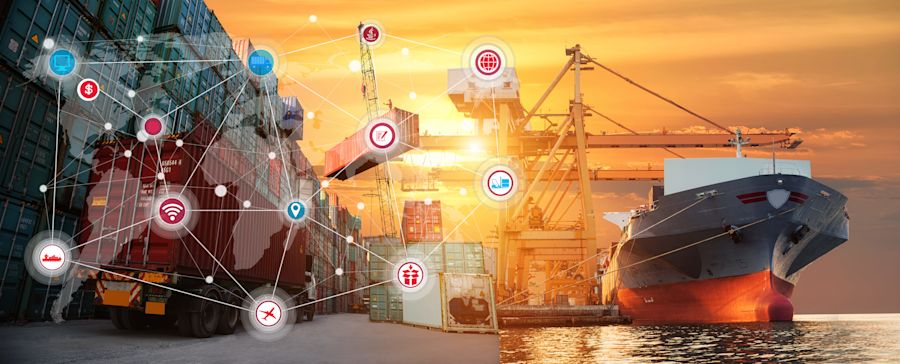Chinese and European smart ports
In recent years, policymakers and academics are assuming that digital technological supremacy and access to large amounts of data come with power. One example that receives increasing attention are smart cities since enormous amounts of personal data are collected, stored, and processed. Widely overlooked is the economic, non-personal data that is retrieved from smart seaports. This is surprising since almost 90% of global trade in goods is maritime and passes seaports. The project defines a smart port as an automated port facility that utilizes emerging technologies such as 5G, Artificial Intelligence, Internet of Things or blockchain solutions to improve performance and competitiveness. Smart seaports are the nodes that collect data on almost the entire international trade.
In this project, I aim to tackle the research gap by examining the (a) financing, (b) design and construction, and (c) operation of smart seaports asking for the opportunities and challenges from a political angle.
In how far does financing of smart seaport projects differ and do potentially divergent financing models induce challenges for the competitiveness of companies offering strategic technologies?
What are the main differences in the technological design of smart seaports? What kinds of data are collected and how is it processed? Which actors have access to data and how securely is it stored?
To what extent does non-personal data processed in smart seaports carry potential of economic and political power?
Are we confronted with different operational practices and to what extent can the prioritization of some customers in smart seaports be translated into political influence?
This project looks at several smart seaport projects that involve European and/or Chinese actors in order to exemplarily examine the opportunities and challenges of cooperation and competition in smart seaport projects. Do we need to expect similar patterns of competition in smart seaports as we have seen with the rollout of basic 5G networks and those that are likely to emerge in smart cities where personal data is processed? Or are smart seaports good examples for an area of digitalization where global cooperation can be preserved?
This project addresses these questions upon the background of European debates over strategic autonomy in digital technologies. By investigating smart ports, this project aims to understand (a) how exactly practices of digital infrastructure financing, construction and operation in smart seaports differ and (b) whether and how exactly they translate into economic and political power. A proper understanding of these two elements is vital for the EU to strike a balance between on the one hand striving for technological sovereignty and on the other hand not fueling a technologically bifurcated world that the EU claims to oppose. It further contributes to our understanding of whether and how digital technology translates into political and economic power in international relations more broadly.
More information will be available soon.


